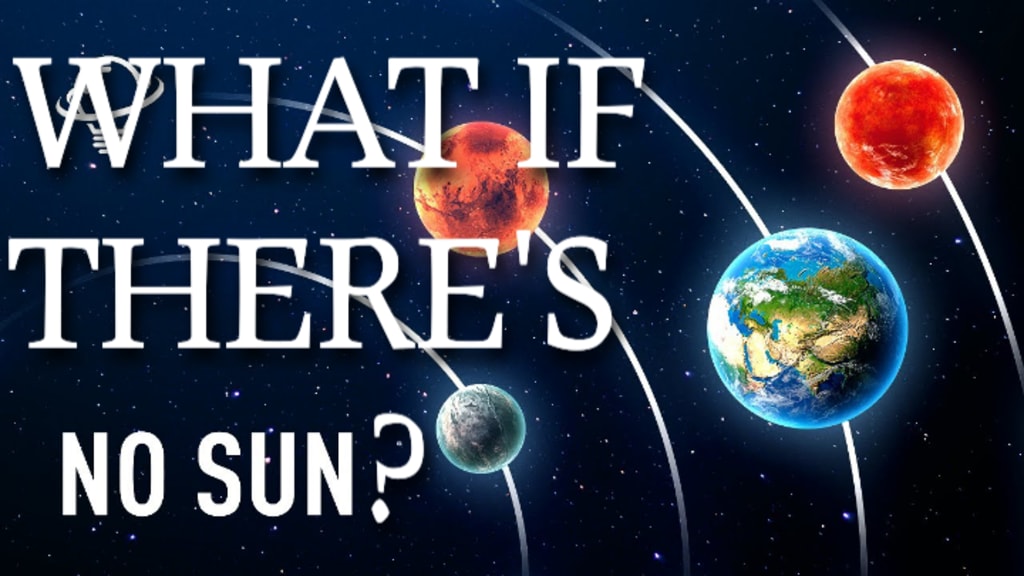If the Sun Suddenly Disappeared What Would Happen? Would We Survive?
In this article, we'll explore what happens to Earth if the Sun suddenly disappeared.

ntroduction
The scenario of the sun suddenly disappearing from our solar system is a fascinating and terrifying thought. In this blog post, we will explore what would happen to Earth, the moon, and other planets if such an event occurred.
The Impact on Earth and Other Planets
The sun plays a crucial role in maintaining the balance of our solar system. Its immense gravity keeps all celestial bodies in elliptical orbits around it. Without the gravitational pull from the sun, each planet would continue its forward motion and eventually leave the borders of our solar system.
Earth, for example, revolves around the sun at an astonishing speed of 67,000 miles per hour. If there was no more gravitational pull from the sun, Earth would shoot out of its orbit at that same high speed. This phenomenon would occur with all other planets as well.
These wandering planets would continue moving through space until they found another object with powerful gravity to capture them. It might take hundreds or even thousands of years before they settled into new orbits around different stars.
Impact on Life on Earth

The disappearance of sunlight has profound consequences for life on Earth. Animals would be among the first to feel these effects as darkness enveloped their habitats earlier than usual. Birds would settle down for an early "night," and natural light sources like Moonlight wouldn't exist anymore since there wouldn't be any sunlight for it to reflect.
Without sunlight, photosynthesis—the process by which plants convert light energy into chemical energy—would cease to occur. As a result, plants and trees would stop growing while herbivorous animals struggle to find food amidst dwindling vegetation supply.
As temperatures slowly drop due to lack of heat from sunlight reaching us directly (though some residual warmth may come through Earth's core), eople might resort to burning wood or coal for warmth survival purposes but without food supply; it wouldn't help much either.
The Fate of Earth and Humanity

As time goes on, the freezing temperatures would cause the seas and oceans to freeze over, trapping their inhabitants. The atmosphere would collapse, leaving our planet vulnerable to harmful radiation waves from space. These harsh conditions would make it extremely difficult for any form of life to survive on Earth.
Humanity, without a doubt, would face an existential crisis. The lack of sunlight means no solar energy for power generation or agriculture. The world would plunge into darkness and extreme cold, making it nearly impossible to sustain human civilization as we know it.
Survival would depend on finding alternative sources of heat and light. People might turn to underground shelters equipped with geothermal heating systems or rely on nuclear-powered generators for electricity. However, these solutions could only provide temporary relief in the face of long-term challenges.
Food scarcity would become a pressing issue since plants cannot grow without sunlight. Agricultural practices such as hydroponics or indoor farming using artificial lighting could be attempted but may not be sustainable enough to feed the entire population.
With limited resources and harsh living conditions, conflicts over survival necessities would likely arise. Society could break down into factions competing for dwindling supplies, leading to social unrest and potential violence.
Ultimately, the fate of humanity in this scenario is uncertain. It's plausible that small pockets of survivors might adapt and find ways to endure in these harsh conditions through innovation and resourcefulness. However, the overall outlook appears grim without access to essential elements like sunlight and its associated benefits.
Conclusion
The disappearance of the sun from our solar system would have catastrophic consequences for Earth and all other planets within our reach. From disrupted orbits to the collapse of ecosystems and civilizations struggling against freezing temperatures, life as we know it couldn't persist under such circumstances indefinitely.
This hypothetical scenario serves as a reminder not only about how vital the sun is for sustaining life but also about our responsibility towards preserving our planet's delicate balance by addressing climate change issues that threaten its stability today.





Comments
There are no comments for this story
Be the first to respond and start the conversation.